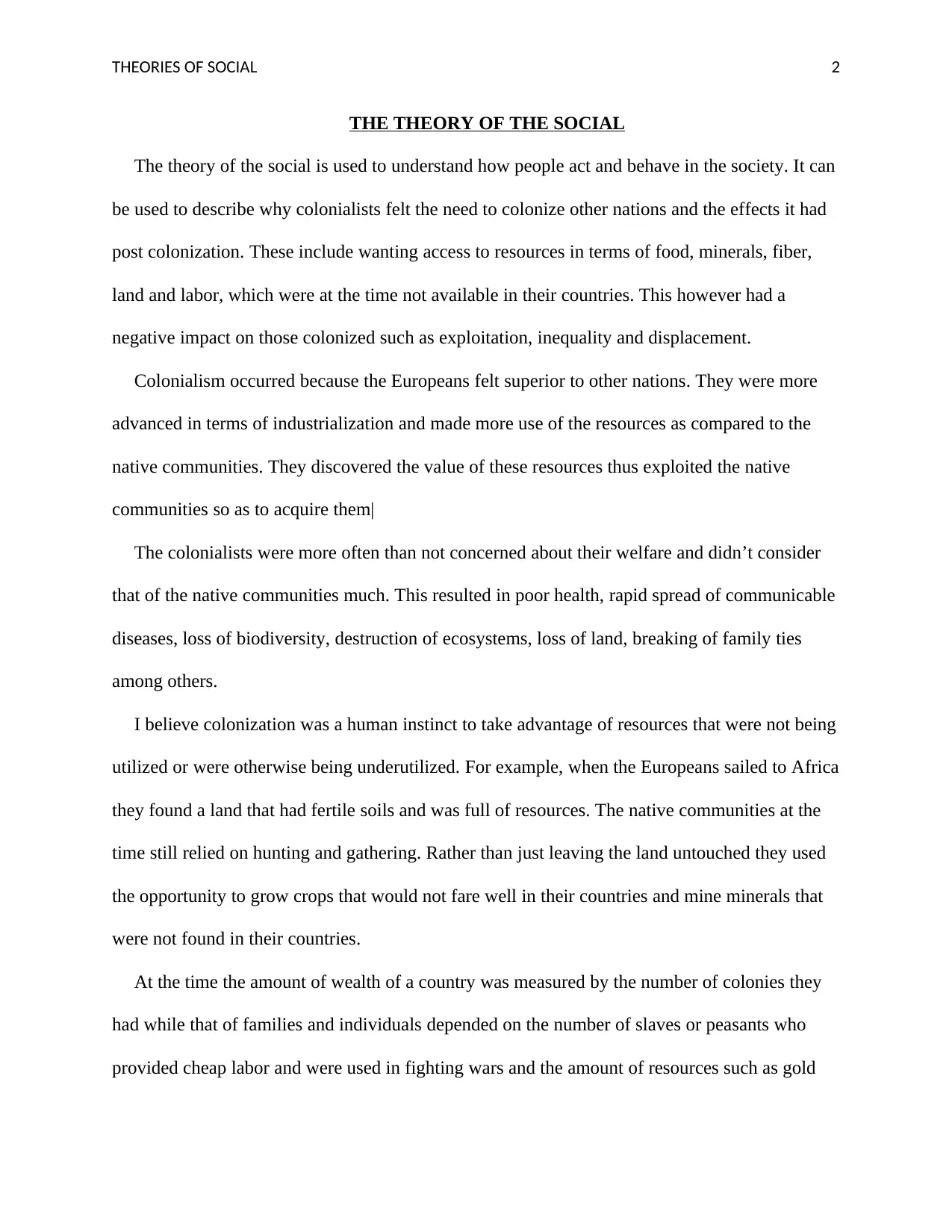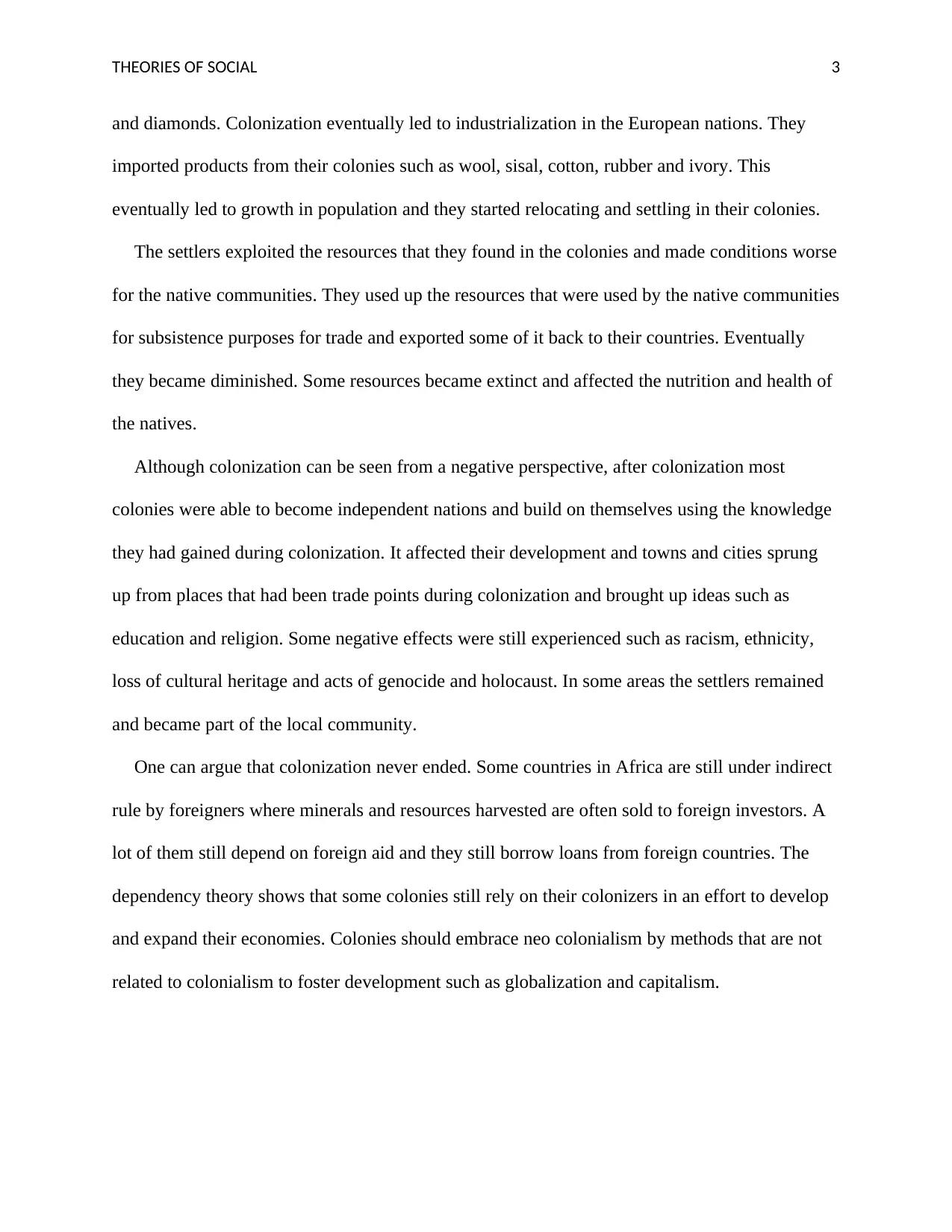Autumn 2019 Theories of the Social: Colonialism Critical Reflection
VerifiedAdded on 2023/04/03
|3
|616
|494
Essay
AI Summary
This essay provides a critical reflection on colonialism through the application of social theories, examining its historical context, motivations, and lasting impacts. It explores the colonizers' desire for resources and the subsequent exploitation, inequality, and displacement experienced by colonized communities. The essay argues that colonialism stemmed from a perceived superiority and the drive to utilize underutilized resources, leading to industrialization in European nations. While acknowledging the negative consequences such as health crises, loss of biodiversity, and cultural disruption, the essay also highlights the emergence of independent nations and the adoption of new ideas post-colonization. The piece further touches on neo-colonialism and the dependency theory, suggesting that some former colonies still rely on their colonizers. It concludes by advocating for non-colonial methods of development like globalization and capitalism, and reminds students that Desklib is a great resource for similar assignments.
1 out of 3










![[object Object]](/_next/static/media/star-bottom.7253800d.svg)